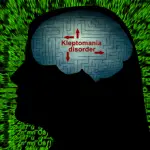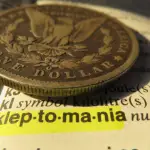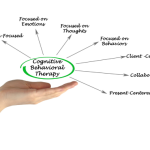Kleptomania is a disorder characterized by the uncontrollable urge to steal. While the behavior of stealing is not premeditated, individuals with kleptomania experience intense feelings of tension or anxiety leading up to the theft, followed by a sense of relief or pleasure afterward. This disorder is related to impulse control, which involves the ability to regulate behaviors and emotions. In this article, we will explore the brain-behavior connection in kleptomania and impulse control.
Understanding Impulse Control
Impulse control involves the ability to regulate behaviors and emotions in response to environmental cues. Impulse control is essential for maintaining social relationships and making healthy decisions. Impulse control is linked to several areas of the brain, including the prefrontal cortex, basal ganglia, and amygdala.
When impulse control is impaired, individuals may experience difficulties controlling their behavior and emotions. Impaired impulse control is linked to several mental health disorders, including kleptomania.
The Brain-Behavior Connection in Kleptomania
Research has shown that kleptomania is linked to several areas of the brain involved in impulse control. Specifically, kleptomania is linked to impaired activity in the prefrontal cortex, which is responsible for regulating behavior and emotions.
Additionally, kleptomania is linked to an overactive amygdala, which is responsible for processing emotions such as fear and anxiety. When the amygdala is overactive, individuals may experience intense feelings of tension or anxiety leading up to the theft.
The basal ganglia, which is responsible for controlling movement and reward-based learning, is also implicated in kleptomania. The basal ganglia is responsible for providing a sense of reward or pleasure after the behavior, which can reinforce the behavior of stealing in individuals with kleptomania.
Interventions for Kleptomania and Impulse Control
Interventions for kleptomania and impulse control typically involve a combination of therapy and medication.
Cognitive-behavioral therapy (CBT) is a common form of therapy used to treat kleptomania and impulse control issues. CBT helps individuals identify and change negative thought patterns and behaviors related to stealing and impulse control.
In addition to therapy, medication can be helpful in treating kleptomania and impulse control. Selective serotonin reuptake inhibitors (SSRIs) are medications commonly used to treat kleptomania. SSRIs work by altering the brain’s chemistry, reducing the urges to steal.
Additionally, behavioral interventions such as reward-based learning can be helpful in treating kleptomania and impulse control. By providing positive reinforcement for healthy behaviors, individuals can learn to control their impulses and reduce the behavior of stealing.
Challenges in Treating Kleptomania and Impulse Control
Treating kleptomania and impulse control can be challenging for several reasons. First, kleptomania and impulse control are complex disorders, and treatment may not be effective for everyone. Second, individuals with kleptomania and impulse control issues may be resistant to treatment or may not fully understand the severity of their condition.
Additionally, the stigma associated with kleptomania and impulse control can make it difficult for individuals to seek help and support. It is essential to create a supportive and inclusive environment for individuals with these disorders, reducing the shame and guilt they may feel.
Conclusion
Kleptomania is a disorder characterized by the uncontrollable urge to steal, which is related to impulse control. Impulse control is linked to several areas of the brain, including the prefrontal cortex, basal ganglia, and amygdala.
Treating kleptomania and impulse control involves a comprehensive and individualized approach, including therapy, medication, and behavioral interventions. By understanding the brain-behavior connection in treating kleptomania and impulse control, we can develop more effective interventions that target the root cause of these disorders.









Leave a Reply